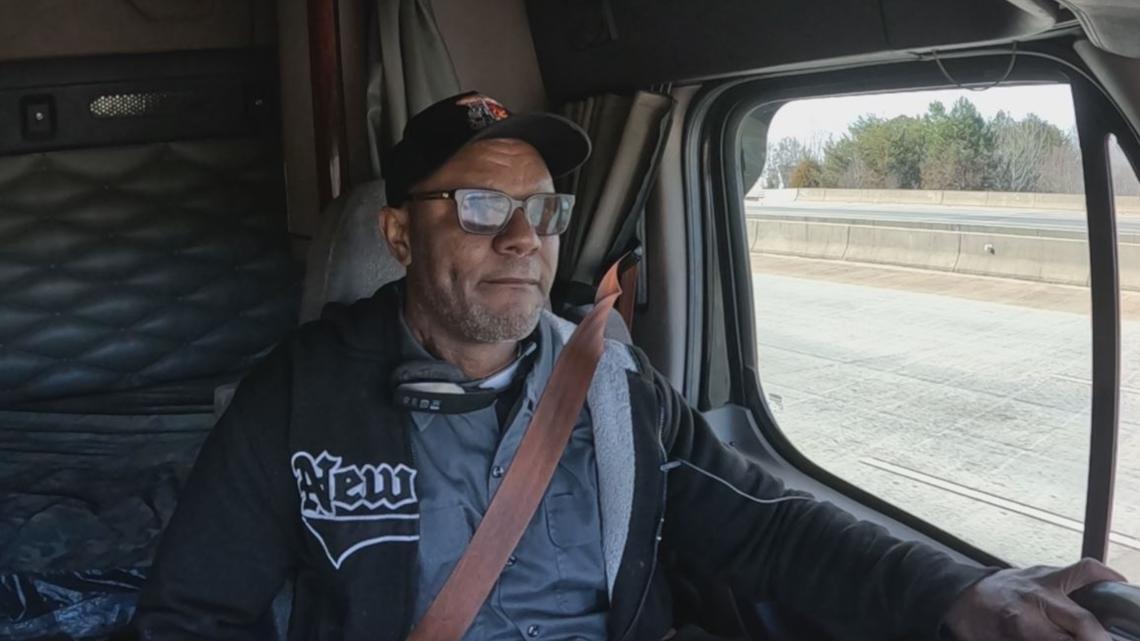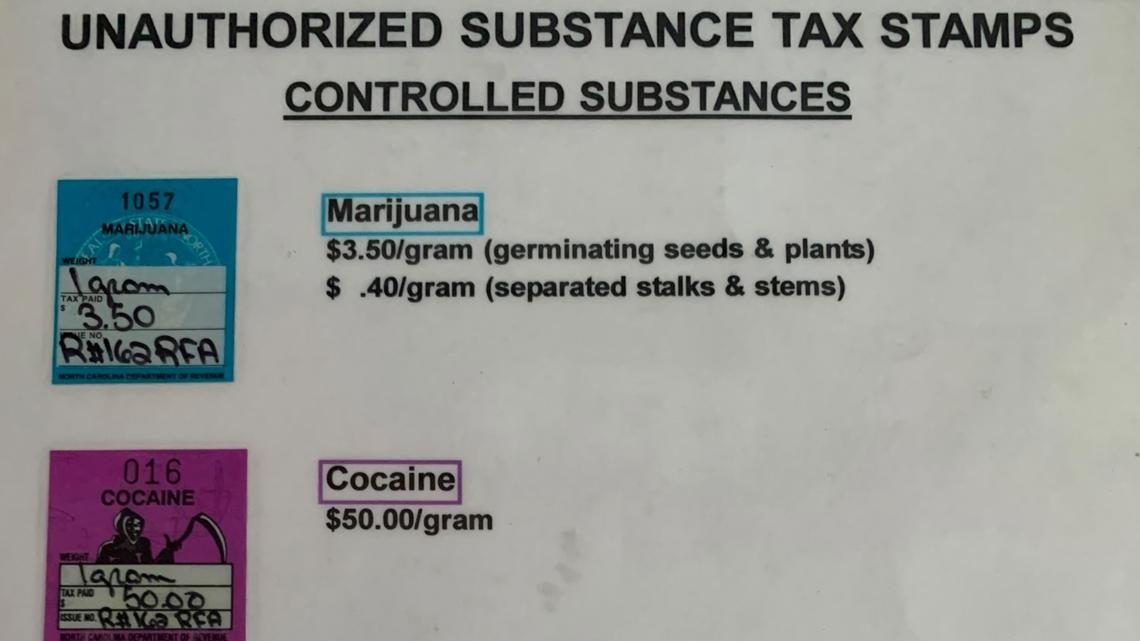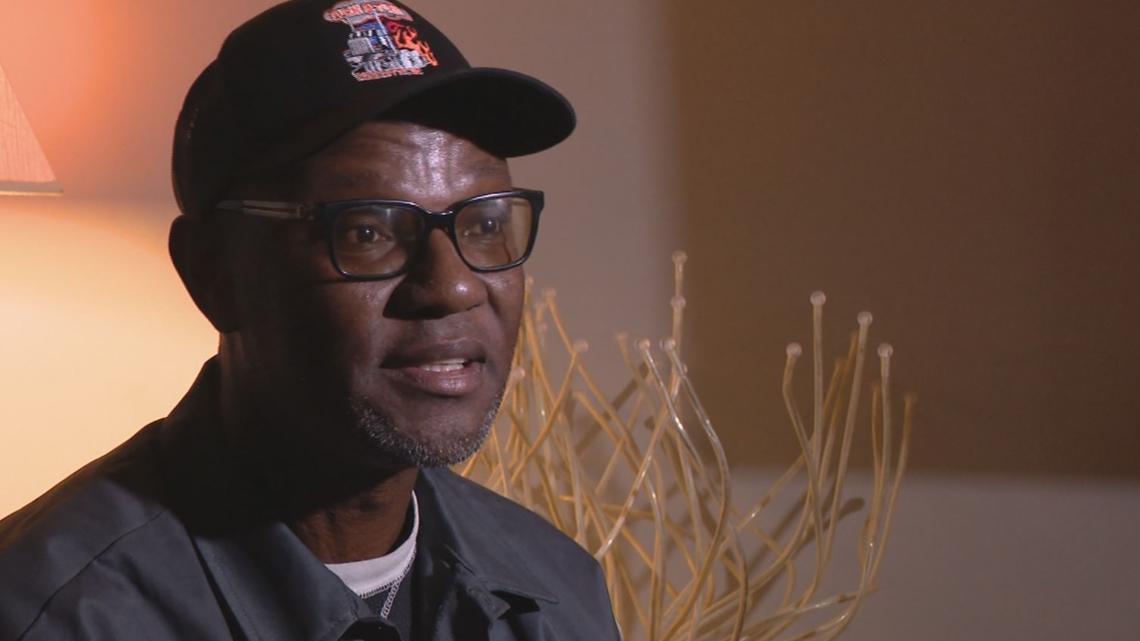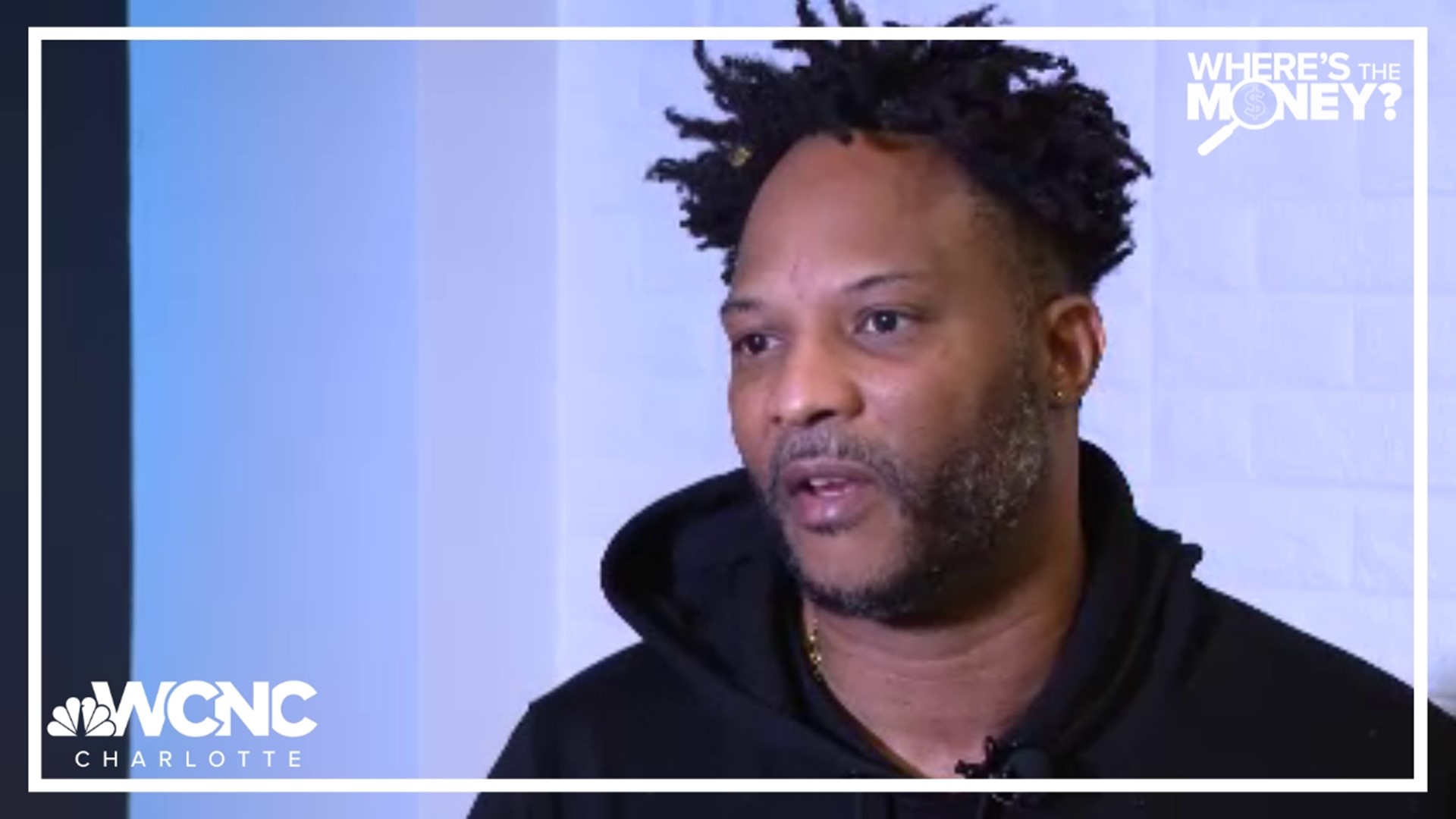CHARLOTTE, N.C. — A little-known North Carolina state tax is costing people found with drugs millions of dollars every year. In return for discovering those drugs, police departments across the state get to keep most of the tax money, even when there's not a criminal conviction.
Passed by the General Assembly in 1989, the Unauthorized Substances Tax requires people who possess drugs to pay taxes through the purchase of special tax stamps. The state is not allowed to alert police if someone buys stamps, but even with that protection, few actually do, so the North Carolina Department of Revenue levies the tax on the back end.
NCDOR has collected more than $100 million in drug taxes since 2010. During the most recent year, the state reported collecting $9 million alone. Of that, 75% is returned to the state or local law enforcement agency who investigated and the remaining 25% is credited to the state's general fund.
"Now you're being punished twice"
Just weeks shy of his 50th birthday, Antonio Mosley is trying to move forward with his life. In the years since he walked out of the penitentiary with just a box of legal papers and some ramen soup, he's gone from homeless to housed and unemployed to starting his own trucking company.


Despite his efforts to overcome mistakes he made as a teenager, the Charlotte man said he continues shouldering more than $11,000 in drug tax debt.
"You've got to realize this was 1993," Mosley said of his drug crimes. "They found some cocaine. I own that. Did my time for that."
Following guilty pleas in 1994 for conspiracy to traffic in cocaine, possession with intent to sell and deliver cocaine and assault with a deadly weapon charges among others, Mosley went to prison. By the time he left the penitentiary for good, he had spent a combined 17 years behind bars.
Despite serving his criminal sentence, he continues serving a civil sentence today. NCDOR charged him $18,000 in taxes, penalties and interest for the drugs police found, according to court records. Mosley said he still owes most of that money.
"I don't think it's fair," he said. "Now you're being punished twice. Everybody should have a little empathy."
What's the benefit?
While law enforcement has said the money benefits drug enforcement efforts and policing in general, Kenny Robinson doesn't see any benefit.
"This is a huge burden placed on individuals," Robinson, the founder and executive director of Freedom Fighting Missionaries, said. "This is very, very common, specifically in Black neighborhoods that were overpoliced. It's just another one of the things that we have to go through trying to better ourselves."


Not only does Robinson run a growing organization that directly helps house and support hundreds of the formerly incarcerated, he's also paid the drug tax himself.
"I was pulled over and had marijuana and some cocaine on me and I was charged for it," Robinson recalled of the traffic stop in Winston-Salem. "Eventually, it was dismissed."
Robinson said the state garnished his wages 15 years later, after his release from prison on an unrelated case.
"It was about $200 worth of drugs that ended up being about $1,700 worth of taxes that they levied out of my income from my employer," Robinson said. "This just isn't right."
He called it "ludicrous" that the state expects people to buy drug stamps to avoid future taxes.
Public records show, since 2018, the state has sold under $2,400 worth of the special stamps. During that same time period, records show NCDOR has collected $44 million in unauthorized substances taxes.
NCJC: Abolish the law, forgive all debt
The North Carolina Justice Center has also remained critical of the tax, calling it "a relic from the height of the War on Drugs." The organization, which advocates for economic and social justice, wants North Carolina to follow the lead of other states and abolish the tax altogether and in the process, also forgive all drug tax debt.
"There is no justification for this law; any reason is trumped many times over by reasons for its eradication," the organization said in a report published in recent years. "Lawmakers implemented this policy during the Drug War era when moralism and vaguely coded racism guided drug policy rather than actual evidence. It is well past time to end this era."


People assessed a drug tax can fight the fee, but they have a narrow 45-day window to do so. That request for review requires written notice to NCDOR. NCJC reported roughly 5,000 people every year are saddled with drug taxes, averaging around $8,800.
"Individuals bearing the cost of the taxes are typically members of low-income communities and communities of color," the report found. "While drug use and distribution rates are typically even across lines of race and socioeconomic position, drug enforcement activities disproportionately target Black and impoverished neighborhoods."
A spokesperson for the organization says NCJC is currently working on a public education and advocacy campaign in hopes of getting the law repealed and debts forgiven.
Trying to move forward
Antonio Mosley flips through books of old pictures in his living room. Many of the faces he sees are loved ones who died while he served nearly two decades behind bars. There are also Father's Day cards his daughter sent him and the last letter his mother mailed before her death.
"Losing your loved ones, your kids growing up without you, that's the hardest," Mosley said of the years he spent behind bars.
In the time since he regained his freedom, with the help of his family, he has overcome a lot. The boy with big dreams of becoming a dentist has grown into a man who's grateful to be alive.
"I wake up every morning thanking God," Mosley told WCNC Charlotte.


He hangs a letter from a halfway house over his bed as a reminder of how far he's come, but it also symbolizes the work still ahead. Mosley is trying to make the most of his second chance, but he said it's difficult to move forward with so much debt still hanging over his head.
He said the government's garnished some of his wages in recent years, but unless something changes, he'll continue shouldering the weight of his past mistakes for many more years — possibly even decades — to come.
"When you come home, if you had kids before, now you got back child support, now you got drug taxes," he said. "It can be kind of hard on somebody. You doing time for both and being penalized twice for one crime."
This investigation started with viewer tips following WCNC Charlotte's "Forfeited" series that exposed local police departments' reliance on a federal loophole that lets police seize people's cash and keep most of it, without requiring criminal charges.
Contact Nate Morabito at nmorabito@wcnc.com if you have something WCNC Charlotte should investigate and follow him on Facebook, X and Instagram.
WCNC Charlotte is committed to reporting on the many issues facing the communities we serve. We tell the stories of people working to solve persistent social problems. We examine how problems can be solved or addressed to improve the quality of life and make a positive difference. WCNC Charlotte is seeking solutions for you. Send your tips or questions to newstips@wcnc.com.

